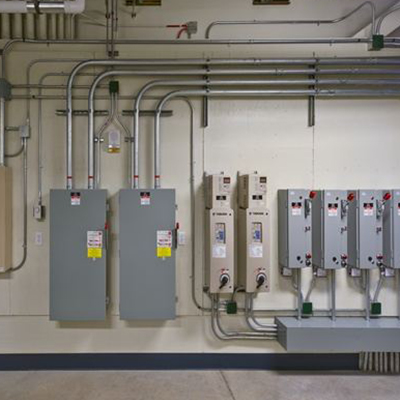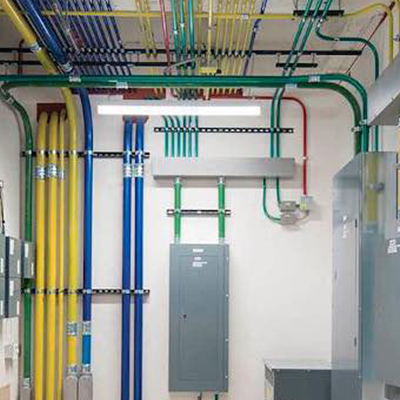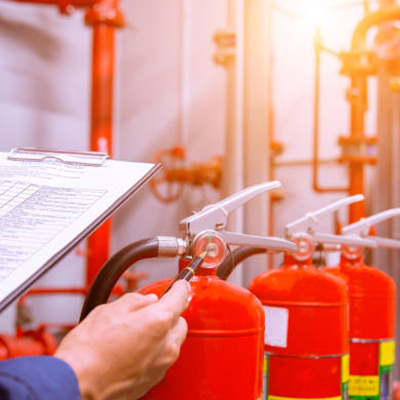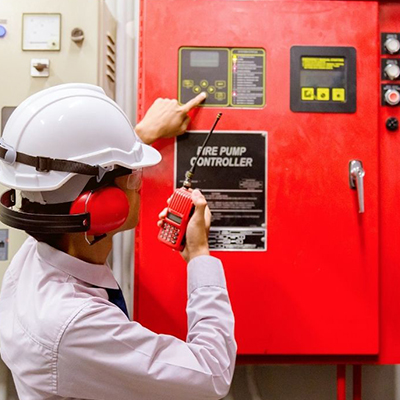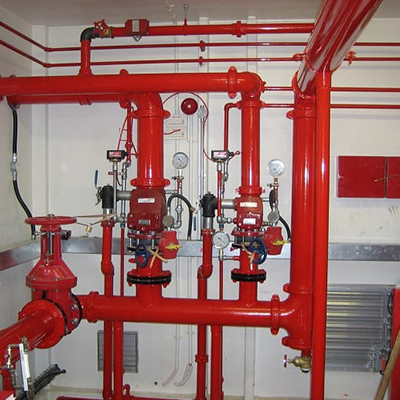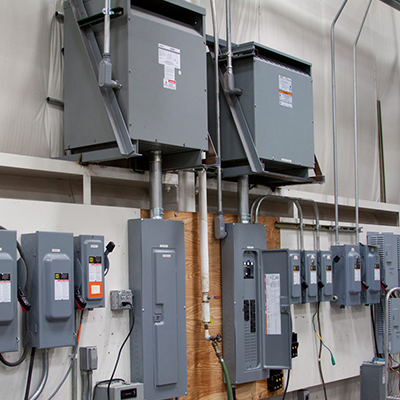Fire and electrical safety are very important considerations in an office environment. It is important that departmental staff do not create hazards that can contribute to fires or prevent exit from an area or building. It is also important that staff be informed and prepared for fire, tornado, and other life-threatening events.
Departmental staff should have a plan for what they will do in the event of a fire, tornado or other emergency and periodically review it. Alternate exit routes should be identified for use if the primary exit is blocked. In buildings with fire alarm systems, staff should become familiar with the location of fire alarm pull stations. When a building fire alarm system is activated, staff must evacuate immediately and not remain in the building; evacuation time is of utmost importance. Close doors to your immediate area to help keep the fire and smoke contained. For further information, see University Public Safety.
Aisles within rooms, main corridors and stairwells must be kept free and clear of any materials that will block, hinder, or slow egress during an emergency. Fire and rescue personnel enter these areas, and any blockage can hinder them. Do not store materials or equipment in corridors or stairwells. Such storage narrows the exit path and is fuel for the fire.
Keep stairwell and room doors to corridors always closed. The only exception is doors that are held open via automatic hold open devices connected to the building fire alarm system, which automatically release upon activation of the alarm. Never place wedges or door stoppers under doors. The most critical element in a building fire is to prevent fire and smoke from spreading rapidly throughout the building, allowing more time for evacuation.
In buildings with sprinkler systems, do not place or store material within 18 inches of sprinkler heads. When sprinklers are activated, a full spray pattern is needed to effectively control the fire.
Good housekeeping is essential in an office environment. Keep office materials and items organized and neatly stored. Minimize the number of combustible materials such as books, papers, boxes, etc., to prevent adding to the fuel load.
Never block or store items in front of fire extinguishers, fire alarm pull stations, and fire alarm audiovisual devices. Immediate access is critical in the event of a fire.
Open flames such as candles are not allowed in offices. They can easily tip over or start combustible items on fire.
The Iowa State Fire Marshal’s Office does not allow portable space heaters to be used in buildings.
All electrical wall outlets and overhead light fixtures must be covered and have no exposed wiring. Exposed wiring should be reported to building maintenance immediately.
All electrical cords and plugs must be in good condition. Never use equipment with frayed cords or exposed wires; if discovered, immediately take the equipment out of service and have it repaired or replaced.
The Iowa State Fire Marshal’s Office does not allow extension cords to be used in lieu of permanent wiring. The only exception is approved UL listed power strips for computers and their associated components. Also, multiple plug adapters plugged into wall outlets are not allowed.
Office staff should not open electrical panel box doors and flip breaker switches, as there is a potential for arc flash and electrical overload. If power goes off to the office area, contact building maintenance. Never block electrical panels with equipment or materials. Immediate access to these panels may be needed by maintenance or emergency responders. Always maintain at least a 36-inch unobstructed pathway leading to electrical panels.

